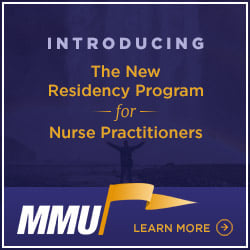Are Too Many Nurse Practitioners Looking for ‘Glam’ Jobs?
I recently spoke with a nurse practitioner faculty member at a well respected university. This particular faculty member was quite friendly and we began discussing her background. She had worked as a nurse practitioner in community health for a number of years. Eventually, she decided to branch out in her career by adding a teaching component to her resume. Throughout her years of teaching, she made an interesting observation.
“Too many nurse practitioners out there are looking for ‘glam’ jobs”, she lamented. Rather than stay true to the roots of the NP profession which was founded in the public health sector (here’s how it all began), she notices that nurses are advancing their education solely for the purpose of higher pay, better schedules, and an easier job. No more dealing with C. diff and Foley catheters, nurses are trading in their work on the hospital floor in hopes of employment in suburban walk-in clinics and dermatology practices – or at least with ‘easy’ patient populations.
While this particular professor certainly sees some new nurse practitioners with a heart for preventative healthcare and helping underserved populations, she has seen an attitude shift in recent years among the nurse practitioner population.
 I was intrigued by what this NP faculty member had to say. In some ways, I have noticed a similar trend. Among my nurse practitioner program classmates, many of us started our careers in the primary care setting, in many cases in communities without sufficient access to healthcare. Over the years, we have specialized, moving to cardiology, dermatology, ENT, and allergy practices. Few have remained in public health and community health settings.
I was intrigued by what this NP faculty member had to say. In some ways, I have noticed a similar trend. Among my nurse practitioner program classmates, many of us started our careers in the primary care setting, in many cases in communities without sufficient access to healthcare. Over the years, we have specialized, moving to cardiology, dermatology, ENT, and allergy practices. Few have remained in public health and community health settings.
On one hand, you could say we moved on from our roots, attracted to higher salaries in specialty medicine. On the other hand, you might say that we moved on as a result of having identified a more specific clinical interest. Our primary care foundation allowed us to identify our passion.
As specialty nurse practitioners, we continue to see patients from all walks of life, but with a specific subset of medical problems. In the emergency department, for example, I treat homeless patients, uninsured patients, and patients seeking help related to limited access to care in the outpatient setting. Sure, my paycheck is more substantial in the ER than during my time working in a walk-in clinic for Medicaid patients. However, I wouldn’t describe working overnight shifts and draining abscesses glamorous at all.
I talk with many nurses who aspire to become nurse practitioners. Most cite a balance of personal and altruistic motives for furthering their careers. And, I think that’s OK. Returning to school to become a nurse practitioner is a costly, time consuming endeavor. So, there should be some personal benefits as a result of the transition. Aspiring nurse practitioners I talk with also seek more autonomy in their careers. They are attracted to the idea of making decisions for patients on a greater scale, rather than sticking primarily to following orders. With a greater degree of autonomy and decision making power naturally comes more ‘glam’, as less desirable tasks are delegated to others.
Yes, there are some nurse practitioners out there who work in practices catering to financially privileged patients. These patients however, deserve care similarly to the rest of our country. So, we need some NPs working in these types of practices. In contrast, there are also a number of nurse practitioners working in rural and remote health settings, caring for patients who might not otherwise have access to care. There are NPs who work in homeless clinics, and nurse practitioners employed in community health practices across our country. Yet other nurse practitioners work in practices serving patients that fall somewhere in the middle of these two extremes. We need NPs with interest in each of these patient populations to maintain such a balance.
Based on my observations, I somewhat agree with this faculty member’s sentiments about ‘glam’ jobs. However, I believe that looking for your job to give you more is a natural consequence of taking the time and energy to advance one’s education. Overall, I have also seen that our nurse practitioner population is pretty diverse, with a wide variety of NPs working in a wide variety of settings, a testament to the importance and flexibility of our profession.
Do you think too many nurse practitioners are looking for ‘glam’ jobs?
You Might Also Like: 2017 Grads, Meet the ThriveAP+ Experience

